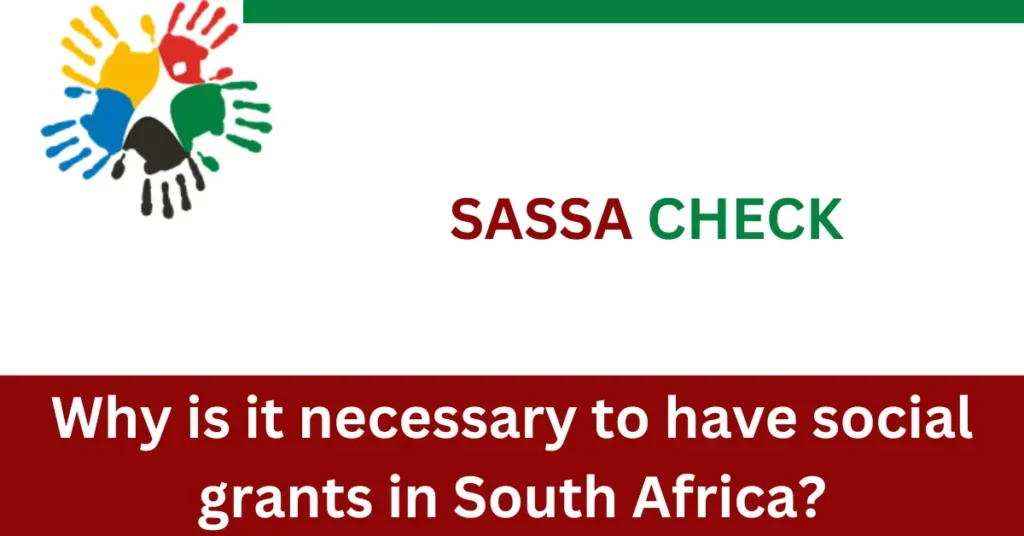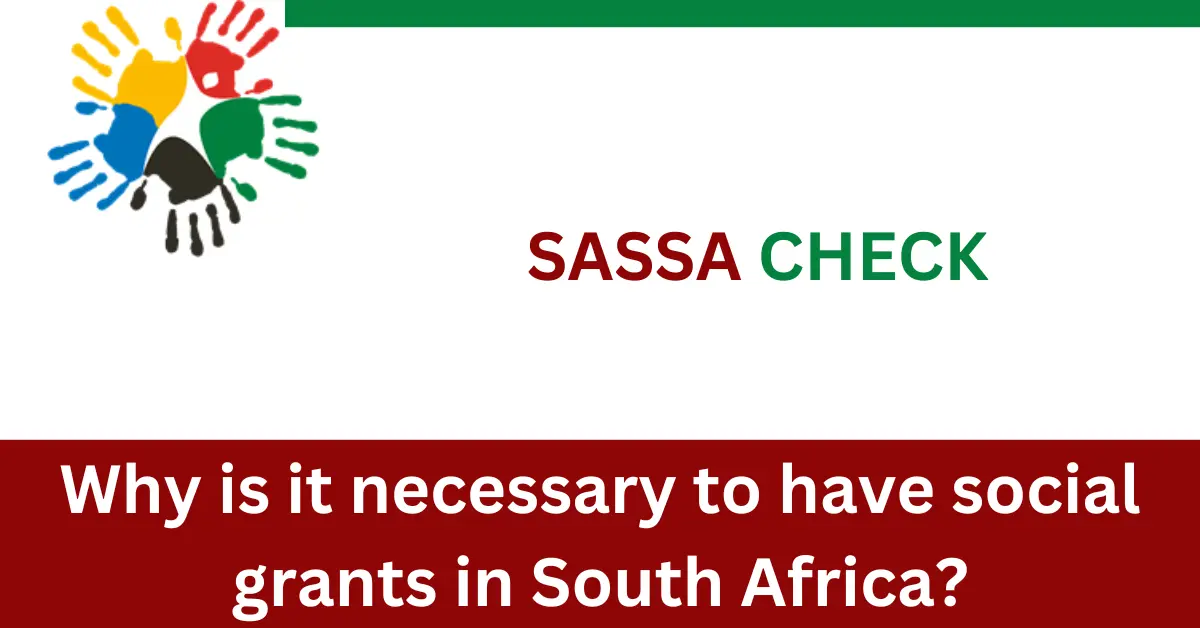Why is it necessary to have social grants in South Africa? South Africa is expected to have more than 60,000,000 people by 2024. This nation is a dynamic one, with great growth. While it is moving towards development, there are some people in the country who live life in extreme poverty.
South Africa’s government distributes different forms of social grants to its citizens every month. But why is it necessary to give these social grants for South Africa’s people? What will happen if the South African government decides to stop these payments? In this article, we will discuss the issue and provide detailed responses to all of your questions.
Also Read: UIF Unemployment Benefits
What is a Social Grant (Support)?
In South Africa, a social grant is an aid program that the government offers to help vulnerable people and families. They are crucial for fighting poverty and improving social welfare in the many communities of South Africa.

Why is it necessary to have social grants in South Africa?
South Africa, with its population in excess of 60,000,000, faces significant social and economic challenges. These include high unemployment rates and widespread squalor. Social grants have a key role to play in helping the neediest people, by ensuring that they can access essential services and maintain a basic standard of living.
South Africa is in need of social grants due to several factors:
- South Africa’s poverty challenge: A significant portion of South Africa’s population lives under the poverty threshold. These grants help those who are most in need to improve their living conditions and alleviate the effects of poverty.
- Reducing inequality: South Africa’s income inequality is among the highest in the entire world. By supporting groups that are vulnerable, like the elderly and disabled or children of low-income parents, they help to redistribute income, reducing inequality.
- Promotion of Human Capital DevelopmentSocial grants that target children and education are important for human capital development. The grants are a way to help children who come from poor backgrounds access nutrition and an education.
- Improving health and well-being.Grants are available to help elderly people and those with disabilities access essential medication and services. This will improve their quality of lives and the overall outcome for them.
- Stimulating Local Economic Growth:Social Assistance often results in increased spending by local residents on products and services, thereby stimulating the economy and providing support for small businesses.
- Crime Prevention & Social Stability: Supporting the poor and disadvantaged through grants and social assistance can promote social stability and reduce desperation, crime and other negative outcomes.
- Dealing with Historical Injustices South Africa’s apartheid history and systemic disparities make social grants a powerful tool for social justice. They ensure marginalized communities receive the needed support.
What is South Africa’s best Social Grant provider?
South African Social Security Agency provides the best social grants in South Africa. SASSA has delivered social grants in the amount of 19137,524 rands. SASSA’s responsibility is to administer and deliver various social grant programs across the country. SASSA currently manages 8 different grants in South Africa.
- Old Age Grant
- Disability Grant
- Grants to Support Children
- Foster Child Grant
- The Care Dependency grant
- War Veterans Grant
- Grant-in-Aid
- Social Relief of Distress Allowance
SASSA has a vital role to play in making sure that the social grants are delivered to those most in need, and provides financial support for vulnerable groups of South Africans. This agency contributes to the alleviation of poverty, and improves well-being and economic conditions for families and individuals facing challenges.
South Africa Can it Survive without social Grants?
South Africa cannot survive without any social grants. The answer is complicated and involves many aspects, such as the socio-economic situation, government capability, and other societal implications. We will explore the issue by breaking it down step-by step.
- South Africa suffers from high levels of inequality and poverty. The social grants help to alleviate poverty because they provide essential income support, especially for the most vulnerable, like children, seniors, and persons with disabilities. Those who are in need of these grants would find it difficult to cover basic expenses such as health care and education.
- Increased Social Stability A reduction in extreme poverty is a major contributor to the social stability. These grants are a safety network that prevents destitution, and helps to reduce the desperation of disadvantaged people. If social grants are removed or reduced significantly, it could cause social unrest as individuals struggle to make ends meet without vital support.
- Economic Effect: There are also benefits to social grants. In rural areas, where poverty tends to be more common, they inject cash directly into local communities. This expenditure helps support local businesses as well as jobs.
- School Attendance and Regular Health Check-ups: Certain behaviors such as school attendance and routine health checks are required to receive social grants. In the end, this has positive impacts on health and education.
- Government capacity and alternatives: Consider whether there is an alternative to social grants if they are significantly reduced, or even eliminated. This includes policies designed to increase job creation and improve education.
- Fiscal Problems:South Africa still faces fiscal problems, as the social grant costs represent a considerable portion of expenditures. The delicate balance of maintaining basic services while supporting those most at risk is no easy feat.
- Solution for Long-Term Problems: At the end of the day, we should aim to create a social protection system which not only meets immediate needs and fosters development but is also able to reduce dependency over time on grants. These reforms could include issues such as improving education quality and creating more jobs.
Verdict
In conclusion, social grants should be part of all societies where people with disabilities and poverty live. A society that does not have these grants or aid programs can fall apart quickly. Therefore, governments and NGOs should continue these types of grant and support those brothers and sisters who are unable to earn enough income for them to lead a more fulfilling life.
